All About DucksIn the interest of full disclosure, I have only been a duck owner for about 6 months so if you really do want to learn all about ducks please read a much more thorough source such as Dave Holderread’s book “Storey’s Guide to Raising Ducks.” However, I would like to cover several key pieces of information about being a duck owner, preferably before you take the plunge into duck ownership! As of this publication, we have 7 ducks that are about 26 weeks old. We chose our ducks mostly based on their egg-laying ability and purchased six females consisting of three different breeds and one lucky Pekin male. The following are 10 helpful tips about ducks. 1. Ducks Love Water I know this seems very obvious, but until you have had personal experience watching ducks around water it is hard to convey how much they truly love water. We introduced our ducks to water around 4 weeks old while under supervision. It is possible for ducks to drown or get too chilled from the water when young so always watch them carefully! Our ducks immediately took to water, well, like a duck to water! Although ducks do not “need” swimming water, they do need drinking water deep enough to wash out their nostrils and to help wash down their food. You can provide ducks with swimming water occasionally via a kiddie pool, however, it is much easier if you have a large enough pond for them to swim on as this eliminates the need for frequent water changes. Kiddie pool water stays clean for all of about two seconds! Ponds, however, also present their own set of challenges, which I will cover below (point #6). 2. Niacin Supplementation Really Is Important One of the biggest challenges of keeping ducks is that it can be hard to find duck-specific food. Therefore, most duck owners end up feeding their ducks either chicken food or an all-flock type food. However, one potential problem with this is that most chicken feeds do not have enough niacin (a B vitamin) for proper duckling leg development. This a bigger problem with some breeds than others depending on their specific nutritional needs and how quickly they grow. In general, all ducks grow very fast, faster than most chickens, and this is reflected in their food quality and quantity requirements. We did not begin giving niacin supplements with our ducks immediately but we did offer sweet peas (the bagged frozen kind from the grocery store) which are high in niacin. We also offered a mixed food of chick starter and all flock starter assuming the all flock would be higher in niacin as it is formulated for chickens, ducks, and turkeys, the latter two which have higher niacin requirements. If you want to know the actual concentration of niacin in a feed you generally have to call the manufacturer. However, at about 4 weeks we noticed our Pekin duck who was growing the fastest, was having difficulty getting up and walking. So, we began supplementing with niacin pills that we crushed into their water (100 mg/gallon). It is important that the niacin pills are straight niacin or niacinamide and not the flush-free niacin which ducks cannot metabolize. This can be hard to find so we ended up going to our local independent health food store. When we did not see any improvement within a few days we also started supplementing their food with nutritional yeast (brewers yeast is also a good option) as yeast is high in B vitamins. We now use livestock yeast from our local feed store which is not as concentrated but can be purchased in 50 lb bags and is much cheaper. We use roughly 1 cup of livestock yeast for every 10 cups of food. Last, we bought a B complex supplement available at our local vitamin store in an eye dropper form and dosed just our Pekin with a half dropperful per day (~10 mg). Since niacin is a water-soluble vitamin you do not really need to worry about overdosing. Additionally, as any duck owner knows, the majority of duck water ends up on the ground and much of the yeast supplement ends up in the bottom of the food bowl. It took about a month of intense supplementation before we started noticing a big difference in Pekin’s ability to walk. At the same time, we also introduced our ducks to swimming water so Pekin in particular could get some exercise without hurting his legs further. Now our ducks spend most of their time in the water but even on land Pekin walks great, although he always lags behind the smaller duck breeds just due to his greater size and weight. 3. Ducks Love Treats This may also be an obvious statement (who doesn’t love treats?) but ducks are very food motivated and love treats! This is a great tool for training as they are not the quickest learners (see the point below). However, ducks can easily become overweight so choose treats wisely, and sparingly. Bread and other bread-type products are very bad for ducks and provide little nutritional value! Our favorite duck treats are peas, cherry tomatoes (cut in half), and most greens which may or may not be nutritionally good for them depending on the type (iceberg lettuce vs kale). Peas are great because you can buy them frozen and never worry about seasonality and not having them on hand (winter in central Wisconsin limits our choices!). We also give scratch grains occasionally but these are not nutritionally complete so should never be given in excess of 10% of their diet. Scratch grains are great for the winter however, because they are easy to keep on hand and the extra carbohydrates help keep the ducks warm. 4. All Ducks are Not Created Equal There are a large number of duck breeds to choose from, although not as many as there are chicken breeds. We made our selection based mostly on their egg-laying ability. Our first duck began laying at 20 weeks and a second started at 21 weeks. We are now up to 4 eggs per day so still have two ducks that have not begun laying. As we are quickly approaching winter in central Wisconsin (mid-November), they may not begin laying until Spring which is fine for us as 4 eggs per day is more than my family of three needs. We chose to purchase our ducks from Metzer Farms as they have a good reputation and offered all the types of ducks we were interested in. We put in an order for 10 ducks to avoid a small order fee but split that order with a friend. We ended up with two female Golden 300 Hybrid, two female Khaki Campbell, two female Welch Harlequin, and one male Pekin. They are all supposed to be relatively calm ducks, except for the Khaki’s which have a more nervous disposition and they are all great to good egg layers. All of our ducks seem relatively nervous to me but that could also be due to the fact that we have an energetic 6-year-old (enough said!). Other than egg-laying ability and disposition, we have also noticed other differences among the various duck breeds. The biggest difference is intelligence. Although no duck is going to be in the running for smartest bird (I think they depend more on instinct) we have noticed that the Khaki Campbell’s are clearly the smartest. They are the first to learn new routines, the first to master going up and down ramps (Pekin and the Welchies never really did learn before we let them loose on the pond), and usually the first to come into their house at night (although this may be more food motivation than actual intelligence). It is not unusual for Pekin and the Welch Harlequin’s to get confused leaving their house in the morning. If the other ducks beat them out of their run they sometimes try to walk through the fencing, the most direct route to the rest of their flock, rather than go through the door. Decide what traits in ducks are most important to you before falling in love with a specific breed. We really wanted runner ducks because they look awesome (think wine bottles with legs) but they are notorious for their nervous disposition. With a small child this duck breed was not a good choice for our family. 5. Ducks Love Each Other Ducks are flock animals. They love/need to be around other ducks so you should never get just one duck. They also get really stressed if they are separated from their flock. So be sure you plan a duck house for a flock of ducks, at least 2-3 ducks. Additionally, if you decide to get a male duck (a drake), make sure you have enough females. Depending on the breed, a single male usually needs 4-8 female ducks, otherwise he can actually hurt or even kill the females from overbreeding! 6. To Pond or not to Pond There are many duck owners who do not have ponds and there is nothing wrong with this as long as you provide fresh water daily and if possible occasional swims in a kiddie pool or something similar. We have a large pond so it was an easy decision to get ducks (no hauling water or cleaning out a kiddie pool). However, ponds do come with their own challenges. The biggest obstacle we have faced is getting the ducks off the pond at night. This is where treats and proper training come into play. Our ducks slowly became adjusted to our pond and over several months explored the shore of the entire pond and also cleaned out a lot of the muck and weeds. However, one night the ducks decided they no longer wished to come off the pond. This happened around 17 weeks when there was plenty of forage for them on the pond and they began to become sexually mature and our male Pekin got his drake feather (a curly feather at his tail that only male ducks get). So, we spent 1-2 hours trying to encourage our ducks back into their house, which involved my husband paddling around the pond in a canoe after dark. After this we decided to only give the ducks treats on land, near their house, and withhold their food from them during the day. They now get fed at night and in the morning but very limited treats and food during the day. This method has worked well although it is not foolproof. If we have a day or two where they give us difficulty coming in off the pond, we keep them in their house/run for a few days so they re-associate it with home, which helps re-train them. I am hoping once the pond freezes this winter, they will also be less inclined to stay out at night. 7. Ducks Love Routine If you want to train ducks, for example, to come into their coop at night, use a ramp, or use a certain door, you basically need to keep the same routine for 1-2 weeks or even as long as two months. They are not the fastest learners and treats go a long way in helping them learn a routine. We are currently transitioning our ducks to a new duck house with a larger back run. For their first 6 months we had them in a chicken/duck tractor which we moved every few days but this seemed to stress out and confuse the ducks, even if it only moved a few feet. Since we wanted a permanent coop with a larger secure run where we could leave them overnight or even for a weekend without worrying, we decided build one this fall. We moved the ducks into their almost complete new coop/run about two week ago. We kept them enclosed and off the pond for the entire first week so that they will associate their new coop with home and will follow us back into the run every night using treats as motivation. Although there was some confusion the first time we let them out they did return to their new coop quite easily using peas as motivation. 8. Duck Eggs Taste Delicious We were a little nervous about getting ducks for eggs since we had never even eaten duck eggs. Sometimes eggs can have off flavors if the ducks derive a large portion of their nutrition from a pond. Since our ducks spent the entire summer on the pond, cleaning out the muck and water plants, we were definitely hesitant about trying our first egg. Of course, like all free-range poultry the yolks were a much darker orange than commercial eggs. The eggs are also much harder to crack, their shell is thicker, and the membrane inside is tough to puncture. The yolks and whites are much firmer as well which makes them harder to scramble. Duck eggs also generally have bigger yolks and smaller whites compared to large chicken eggs and their eggs tend to be larger as well depending on the breed. However, the eggs themselves are delicious, they tend to be creamier than chicken eggs, likely due to their larger yolks, which makes bakers love them. Overall, there is no reason to avoid duck eggs and many reasons to try them. One caveat is that you can be allergic to duck eggs and not chicken eggs, but the reverse is also true and some people allergic to chicken eggs have found they can eat duck eggs! 9. Ducks are Cold Hardy When we were deciding whether to get egg-laying chickens or ducks one of our biggest considerations was weather. We live in central Wisconsin and although there are many colder places in the US, this is by far the coldest place I have ever lived. Although there are several hardy chicken breeds, ducks are better at dealing with cold and wet climates. Chickens will not generally go out into the snow or rain, but ducks not only go out, they absolutely love it! We live in Zone 4 so it is not unusual for winters to get at low as -20 to -30 °F with wind chills. Although ducks still need a good shelter to protect from both predators and the weather, they are much better equipped to deal with cold weather than are chickens. 10. Ducks are Highly Entertaining My last point is that ducks are highly entertaining! Yes, they can be frustrating to train. Yes, they are much messier than chickens (although significantly less messy when free-ranging on a pond). Yes, they can be stubborn. Yes, I have gotten extremely frustrated when it is dark outside and they will not come off the pond after trying for 2 hours to get them back on shore. But ducks are super fun which makes up for everything else! They, will follow you around if you have treats, or they think you have treats, they talk to each other constantly, they love playing in water, mud, or snow, and if you get them as ducklings, they just might be the cutest animals ever!
0 Comments
Leave a Reply. |
Details
AuthorIn 2016, my family and I moved from the New York City area to small town Wisconsin. Our move, this website and blog (and our previous Etsy store) is the result of our desire over the past several years to simplify our lives, increase our quality of life, reconnect with nature, and enjoy a more self-sufficient life. I grew up as a country kid in central Pennsylvania working on my grandfather's fruit farm and as a corn "de-tassler" at a local seed farm. My background is in biology where my love of nature originated. I am a former research scientist and professor and have now transitioned to a part-time stay-at-home mom, self-employed tutor, and small business owner. Thank you for taking the time to check out my site. Archives
July 2024
Categories
All
|
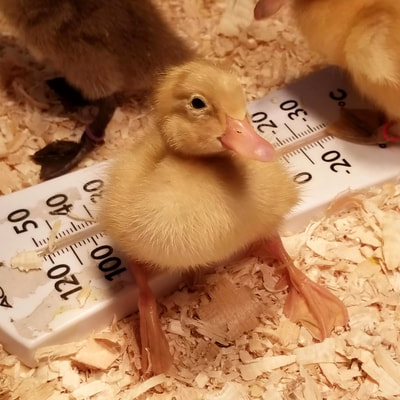
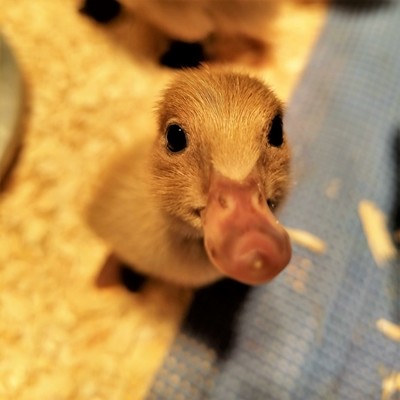
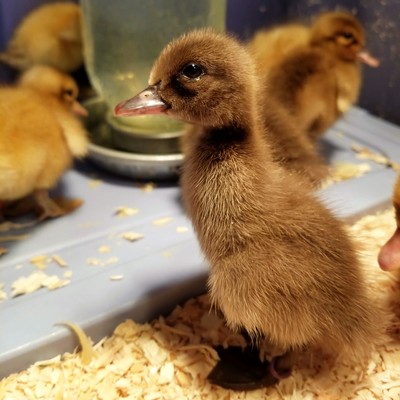
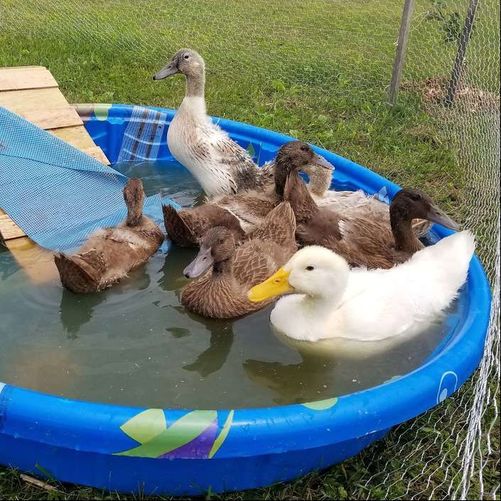
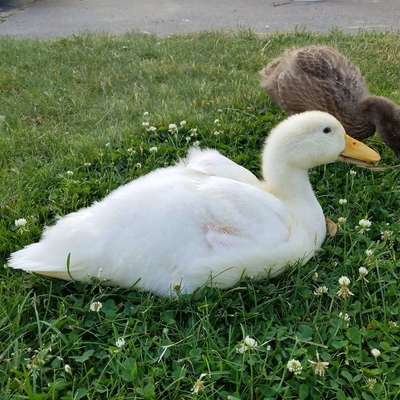
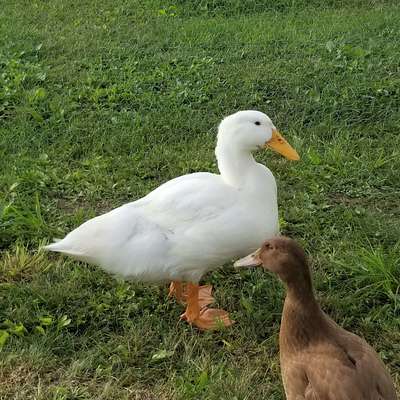
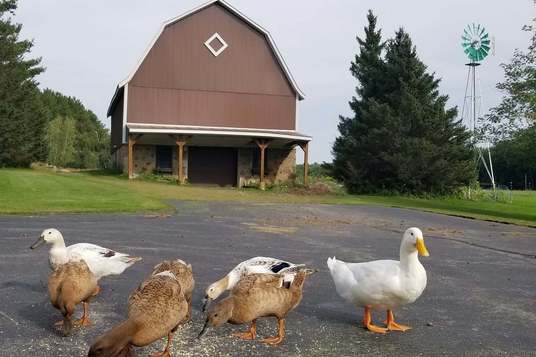
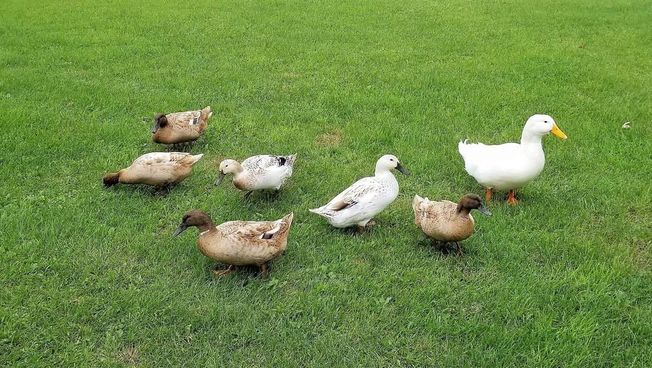
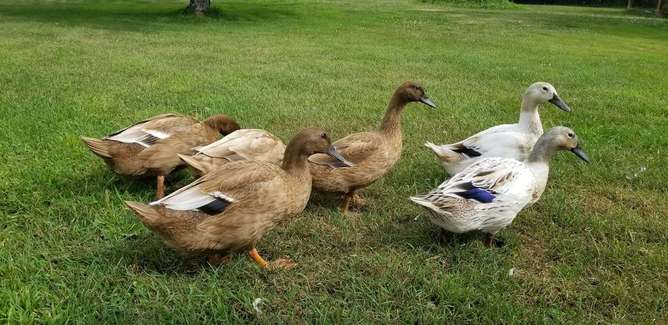
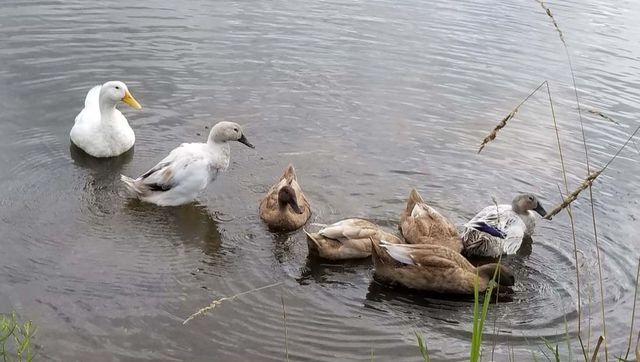
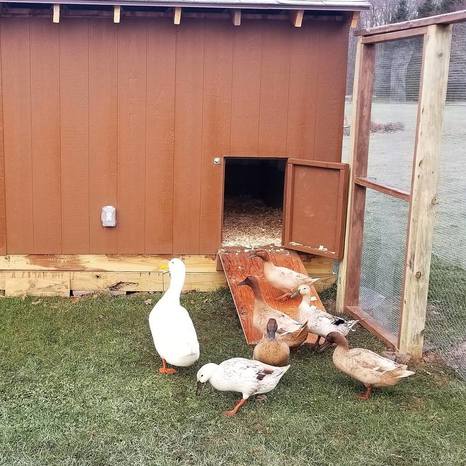
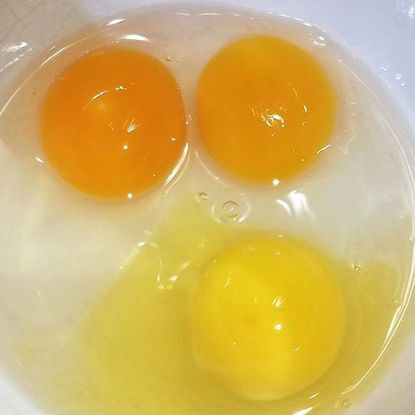
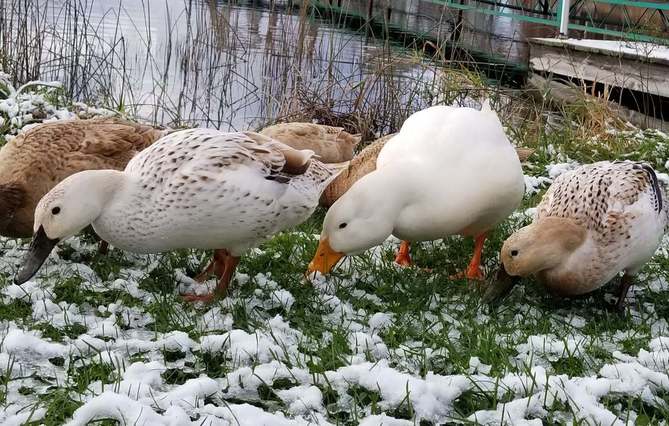
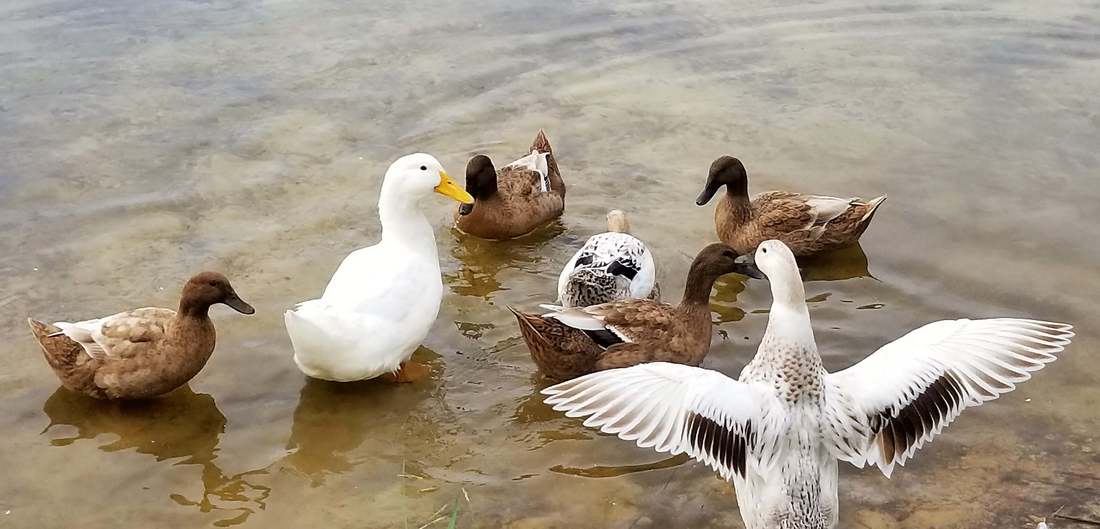
 RSS Feed
RSS Feed